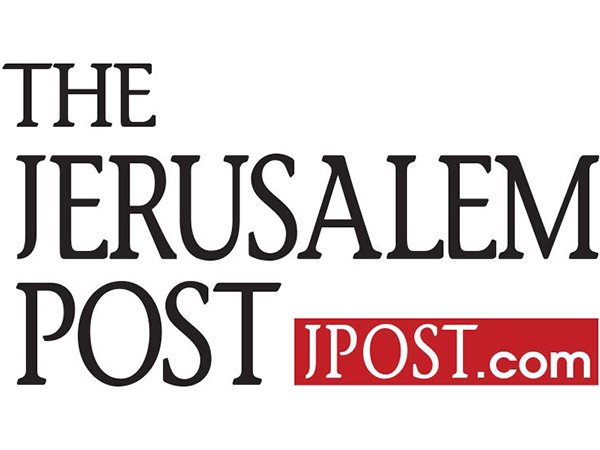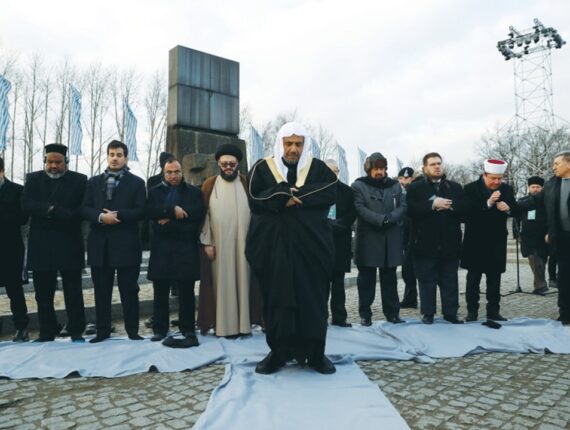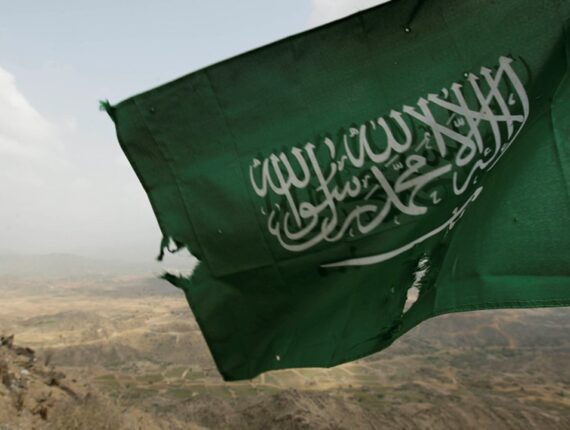
The Jerusalem Post
Op-ed by: Rabbi Marc Schneier
July 8, 2022
I have no doubt that when Saudi Arabia reaches out its hand toward Israel, the friendship will be deep and sustainable.

MOHAMMAD AL-ISSA, secretary-general of the Muslim World League, leads a prayer during a visit to Auschwitz-Birkenau, 2020. (photo credit: KACPER PEMPEL/REUTERS)
President Joe Biden’s upcoming visit to Saudi Arabia is sparking speculation about the future of US policy in the region and the prospect of a breakthrough in Israeli-Saudi relations. The question of normalization seems to be not “if” but “when,” as an unprecedented alignment appears to be occurring between the Jewish state and the home of Islam’s holiest cities. With US leadership, anything seems possible.
News reports so far have focused on arrangements concerning Red Sea islands and overflight regulations, regional defense coordination and intelligence sharing. But none of these elements captures why this moment is different in a region replete with past diplomatic failures. Unlike those processes, the current rapprochement is building on interfaith and cultural foundations between the region’s peoples.
In the past couple of years, increasing numbers of openly self-identifying Jews and even Israelis have traveled to the kingdom. Almost all have reported positive experiences, from their business or official meetings with senior government representatives to conversations in the café and with taxi drivers and Saudis on the street. Videos have made the rounds on YouTube and elsewhere showing Saudis embracing these people as individuals, but also the very idea of their country welcoming in Jews as visitors.
These are not merely anecdotal examples; what we are seeing is a whole-of-government and whole-of-society reassessment of Jews and Israel. A report by the Israeli organization IMPACT-se recently confirmed the progress that Saudi Arabia has made in removing legacy antisemitic content from textbooks. And Saudi media has been free of such hateful content for several years.
The government also has enforced tough standards on preachers inside Saudi Arabia who in a past time would have had no compunction flirting with hatred as means to draw congregants or build their television or social media followings. On questions related to Middle East peace, it has consistently advocated prudence and dialogue toward a two-state solution.

Saudi Arabia’s national flag is seen at the Khoba frontline border with Yemen (credit: REUTERS/FAHAD SHADEED)
Put into perspective, the changes occurring in Saudi Arabia as they pertain to Israel and Jews are monumental. They stem in large part from Crown Prince Mohammed bin Salman’s Vision 2030, which aims to transform the country from an oil state to a diversified economic juggernaut, and from a social and cultural backwater to a dynamic leader in arts, entertainment, sports and intercultural exchange.
But in some ways, the paradigm shift is even older, starting with King Abdullah’s reforms to promote tolerance. The late monarch hosted a global interfaith forum in 2008 and delivered a historic speech at the United Nations, making the case for religious acceptance and diversity in the Gulf and globally.
We can draw a line from these efforts to many of the changes that have so rocked the region in the last couple of years, including the Abraham Accords that Israel signed with the United Arab Emirates and Bahrain in 2020. I still consider it a privilege to have participated in the forums led by King Abdullah in Madrid and New York, and I see his words reverberating today in the collective conscience of Saudi youth as well as several leading Saudi institutions.
For example, the Saudi-led Muslim World League has transformed itself from an organization seen by many as part of the problem with its funding of conservative imams and mosques in various countries. Now, it stands at the forefront of the interfaith discussion, and its secretary-general led a historic delegation to Auschwitz a couple of years ago. The body meets regularly with Jewish leaders in the Gulf, Europe and the United States, as well as Christians, Sikhs, Buddhists and members of other faiths.
All of these initiatives are showing Saudis the benefits and the joy in building cooperation and mutual understanding between Muslims and Jews. While prejudices remain and politics always pose an obstacle, the desire to hear and be heard, to listen and to learn, to dialogue and to reconcile is what will allow this next generation to go further than ones before it.
President Biden’s trip is unlikely to produce any immediate surprise on the normalization front. The Saudi leadership has made clear that it wants to establish relations with Israel in a way that enshrines an agreement producing a fair and comprehensive solution to the conflict with the Palestinians. We should therefore keep our short-term expectations realistic.
But the Saudis are showing a true desire to move in the direction of not just relations, but partnership. The crown prince publicly has called Israel a “potential ally,” words never uttered by a monarch from the al-Saud family, and the quiet defense and intelligence engagements between the two countries are by now so frequently reported that we can no longer call them secret.
I have no doubt that when Saudi Arabia reaches out its hand toward Israel, the friendship will be deep and sustainable. For it will be built on a foundation of trust between Saudi and Israeli leaders, and faith and warmth among the Saudi and Israeli people.
For someone like me who has spent decades working to foster interfaith diplomacy between Muslim and Jewish leaders, I feel much already has been accomplished. Whether normalization occurs this year or next, or a few years from now, the path to peace has never had such momentum or clarity
Copyright © 2025 Foundation For Ethnic Understanding. All rights reserved. | Privacy Policy